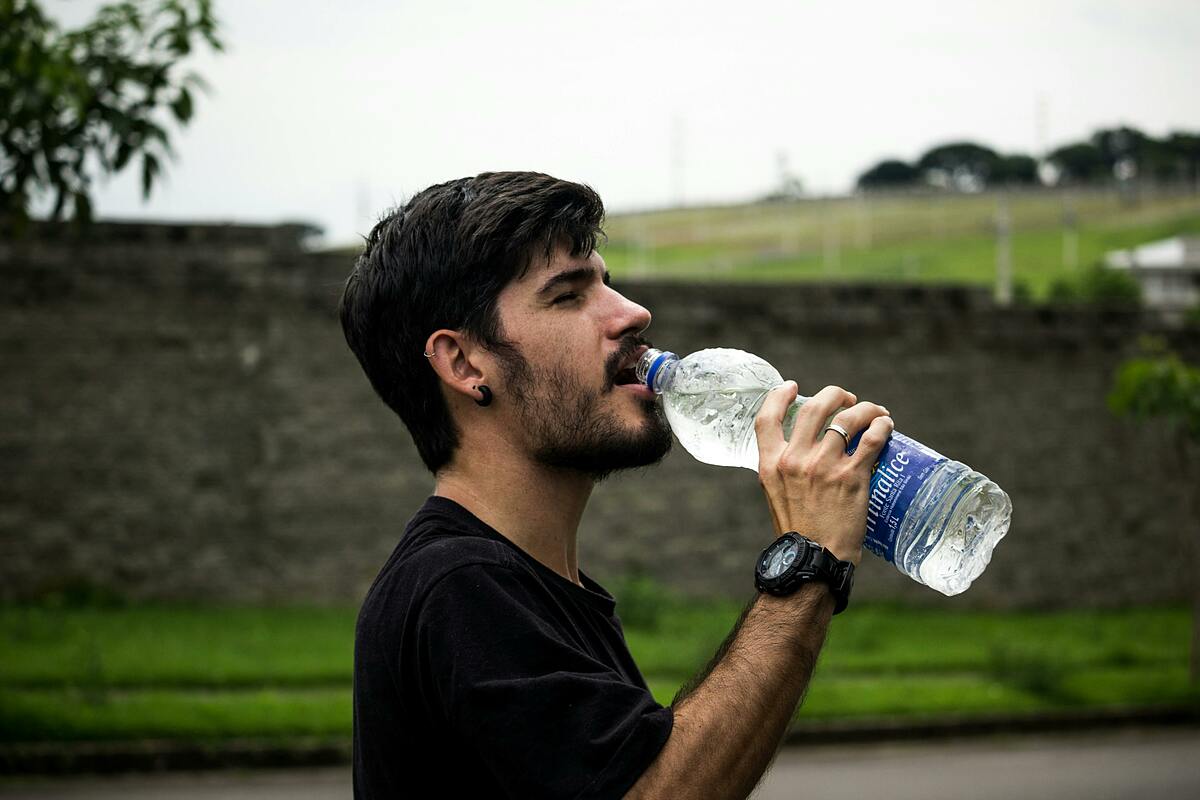Doctor Khuat Nguyen Chinh, Head of the Urology Department at Taiwan's Hongren Hospital, recounted the case of a 35-year-old male office worker who was hospitalized in July with severe lower back pain, cold sweats, and an inability to stand upright. Examinations revealed a 5mm kidney stone, despite the man's claim of drinking at least 2 liters of water daily. This raises the question: is drinking a lot of water enough to prevent kidney stones?
According to Dr. Chinh, the notion that "drinking lots of water prevents kidney stones" isn't entirely accurate. How you drink water is more important than the total daily intake. He cited clinical studies showing that over 70% of kidney stone patients consume substantial amounts of water daily, yet still develop stones.
Kidneys remove excess calcium, oxalate, and uric acid through urine. Insufficient water intake leads to concentrated urine, creating an environment for these minerals to crystallize and form stones. However, drinking too much water at once is counterproductive. The kidneys quickly excrete this excess, only temporarily diluting the urine. Afterward, urine returns to a concentrated state, leaving the risk of stone formation unchanged.
Additionally, beverages like tea and coffee don't count toward total water intake. Their caffeine and sugar content can affect calcium absorption, indirectly increasing the risk of kidney stones.
Dr. Chinh emphasized the importance of drinking frequency and method. To effectively protect their kidneys, people should follow 4 key principles.
Drink small, regular sips of water throughout the day.
Daily water intake should be calculated based on body weight, averaging 30 ml/kg. A 50 kg person needs at least 1,500 ml/day. Those who exercise frequently, sweat heavily, or work in air-conditioned environments should increase this to 40 ml/kg. Every 30-60 minutes, drink about 200-300ml, equivalent to half a small bottle of mineral water, to aid kidney metabolism and prevent urine concentration.
Consuming smaller amounts of water more frequently allows for better absorption, maintains stable circulatory volume, and ensures efficient kidney filtration. Conversely, gulping large amounts of water in a short time leads to rapid excretion, diminishing its effectiveness in regulating internal balance and waste removal.
 |
Experts advise against drinking too much water at once. Photo: Pexel |
Experts advise against drinking too much water at once. Photo: Pexel
Don't wait until you're thirsty to drink, and avoid drinking too much at once.
Thirst typically appears after 2-3 hours of dehydration, by which time urine is already concentrated. The body can only absorb about 200ml of water every 20 minutes. Consuming 500-1,000ml at once leads to rapid excretion without proper cellular distribution or effective urine dilution. Therefore, drink slowly, in small sips, and carry a 350ml water bottle for regular refills throughout the day.
Regular water intake not only stabilizes body fluids but also reduces strain on the kidneys, particularly in hot weather or after exercise. It also maintains skin hydration, aids digestion, and lowers the risk of urinary tract issues.
Drink water and monitor urination frequency.
Adults should urinate 4-7 times/day, approximately every 2-3 hours. Urinating less frequently may indicate dehydration, concentrated urine, and a higher risk of kidney stones. Urine color and odor are also important indicators.
Clear, odorless urine signifies adequate hydration, while dark, strong-smelling urine or infrequent urination suggests dehydration or potential kidney problems. According to urologists, monitoring urination habits is a simple yet effective way to self-assess kidney health and proactively prevent stone formation.
Drink extra water when consuming coffee or tea.
Caffeinated or sugary drinks like coffee, milk tea, and soda cannot replace water in maintaining hydration.
Caffeine has a diuretic effect, increasing urination and accelerating dehydration. Sugar alters calcium metabolism, increasing the risk of kidney stones. Therefore, for every caffeinated or sugary drink, doctors recommend an additional 300ml of water to compensate for fluid loss and support kidney function, while maintaining urine dilution to prevent stone crystallization.
Thuc Linh (According to HK01)












